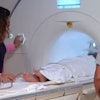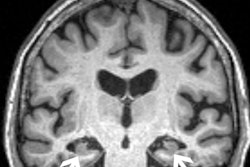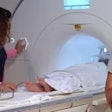CHICAGO – Financial hardship and health-related social needs are major drivers among radiology outpatients who do not show up for their appointments, according to research presented November 29 at RSNA.
Despite this, there are very low screening and assistance rates at non-radiology encounters and almost no screening done at radiology encounters, said Andrew Cuyegkeng, of the University of California, Irvine, in a session on health equity research.
“We believe that rigorous screening for these health-related social needs and financial hardship should be implemented and interventions should be designed and utilized to address and target these needs,” he said.
Patients who cancel or are no-shows to their outpatient radiology appointments have been shown to have worse health outcomes, possibly due to delay in diagnosis and treatment, yet no studies have evaluated rates of health-related social risks (HRSRs) and financial hardship in these patients, Cuyegkeng noted.
To that end, the researchers identified 165 patients (mean age: 55; 73% female; 54% white, 18% Asian, and 16% Hispanic) who canceled or did not show up to their outpatient CT, MRI, mammography, or PET/CT imaging test at their hospital and invited them to complete a 10-minute survey.
According to the findings, of the appointments that were missed, 36% were for MRI, 36% for mammography, and 20% for CT. A total of 30.1% of respondents indicated that their scheduled imaging appointment was a financial hardship for them and their families, and for 6.1% of patients, not being able to afford the cost was the reason for cancellation or no-show.
In addition, 47.4% reported experiencing at least one HRSR (26.7% food insecurity, 13.5% housing instability, 12.9% transportation problem, and 9.9% utility concerns) and only 10.4% were previously screened for HRSRs.
“A vast majority of our patients, about 88%, have never been screened for basic needs assistance… and almost 90% has never received any basic needs assistance for the listed social needs,” Cuyegkeng said.
He added that interventions institutions can implement to target these social needs may vary by location and resources available, but suggested the following:
- Subsidizations for ride-sharing services
- Connecting patients to social workers to mitigate food insecurity and to housing stability and bill assistance programs
- Connecting patients to financial aid programs and price calculators for transparent out-of-pocket costs
“It is crucial to identify and intervene on patients at risk for financial hardship and HRSRs as a modifiable barrier to radiology services,” Cuyegkeng concluded.



















